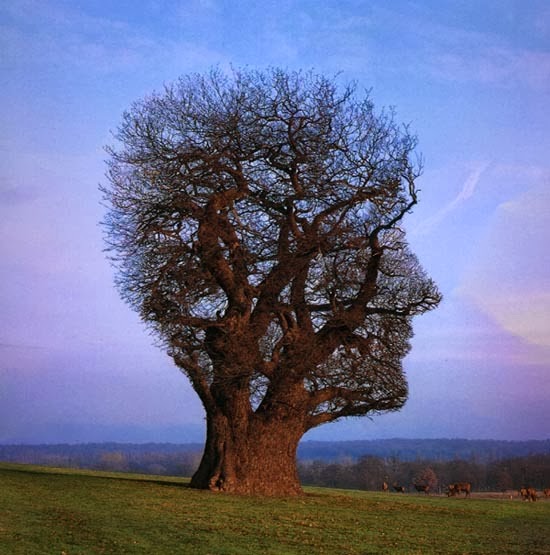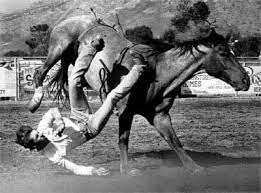At
best, these people found temporary happiness, a brief little spike of joy followed by the empty feeling of "what's next?" At worst, their actions had the opposite effect and sank
them deeper into misery.
No
matter how much money you make or fame you acquire, no matter how high you've
risen through the ranks or what kind of car you drive, you will
always see what you don't
have.
I’m not advocating a monastic lifestyle devoid of material possession and achievement, only stating that the pursuit and attainment of such things does not guarantee happiness. If you're the type of person whose life consists of a long list of problems; who never accepts responsibility for these problems; who denies all suggested solutions; and who, when one problem is solved, moves on to the next without appreciating or acknowledging the resolution of the previous; then no amount of material wealth or achievement will ever make you happy.
How can something as seemingly simple as happiness beguile so many people? How come so many of us have the wrong idea about what happiness truly is?
I believe that happiness is a state of mind which can be cultivated, not a hidden
treasure to be rooted out. Changing your external world wont make you happy but changing your internal world--the way you think--will.
(Disclaimer: I'm not a guru, Buddhist monk, neurologist, psychologist, life-coach, counsellor, or any other such thing. I work in insurance, a field that produces more alcoholism and stress-leave than any other industry on the planet. Insurance will ruin your faith in humanity and leave you jaded, withered, and hunched over your desk. You should probably take anything I say on the topic of happiness with a grain of salt.)
But before we get to that we must first define happiness.
Imagine your emotions displayed on a chart. When you're feeling neither happy nor unhappy, you are at baseline. Dips below baseline signify moments of unhappiness while spikes reflect moments of joy. Now happiness itself isn't an emotion; it's more like the sum of all your positive emotions. Happiness is the amount of time you spend above baseline.
If you agree with the above then you'll agree that the key to happiness is controlling one's emotional state, or more precisely, avoiding negative emotions like jealousy, haughtiness (not to be confused with naughtiness, you dirty rascals!), anger, sadness, etc. while trying to produce as many positive emotions as possible. You'll know these to be love, affection, appreciation, hope, etc.
Imagine your emotions displayed on a chart. When you're feeling neither happy nor unhappy, you are at baseline. Dips below baseline signify moments of unhappiness while spikes reflect moments of joy. Now happiness itself isn't an emotion; it's more like the sum of all your positive emotions. Happiness is the amount of time you spend above baseline.
If you agree with the above then you'll agree that the key to happiness is controlling one's emotional state, or more precisely, avoiding negative emotions like jealousy, haughtiness (not to be confused with naughtiness, you dirty rascals!), anger, sadness, etc. while trying to produce as many positive emotions as possible. You'll know these to be love, affection, appreciation, hope, etc.
If emotions could be easily controlled I wouldn't be writing this post because everyone on the planet would be living in bliss! Unfortunately emotions are wild and unpredictable. They're like drugs peddled by your scumbag brain. When you feel elation or rage, that's your brain dumping neurotransmitters into your system and creating a chemical reaction. You experience a physiological change. Your perception is twisted, your judgment clouded. The rational part of your mind is muted.
The aim is to prevent the initial chemical dump that sets off the entire chain-reaction. Easier said than done. We can't predict everything that will come our way. What if some guy cuts you off on the highway? What if your nemesis at work beats you to a promotion? Our emotions are triggered by external stimuli. Without controlling your environment and everything in it, how can you hope to master your emotions?

For me, the key was mindfulness.
Don't let Buddha scare you off. I have yet to sit cross-legged, hands on knees, while chanting my mantra. Mindfulness does not require meditation. Simply put, mindfulness is an objective awareness of one's body, feelings, surroundings, and thoughts. It helps you maintain realistic expectations of yourself, others, and future events.
You have to be in a constant state of readiness. You have to expect negative things to happen and be prepared to accept them so that you aren't caught off-guard when they do. By doing this you can avoid the chemical dump and explore the situation calmly and rationally instead of blowing a gasket.
Mindfulness takes practice. You have to work at it until it becomes second-nature and even then you'll get caught off-guard on a bad day. It's worth the practice though. Nothing beats being confronted by an infuriating situation--walking into the living room to find your toddler coloring on the hardwood floor, for example--and feeling a cool calm wash over you. Many of us--myself chief among them--spent the better part of our lives at the mercy of our emotions. Our jealousies and bad tempers dictated much of who and what we were.
Emotions dictate whether we are happy or miserable. In order to cultivate happiness, we must learn to master our emotions. Mindfulness is the first step toward this goal.
Give it a shot. Keep track of your thoughts and emotions throughout the day. Expect to encounter shitty situations and accept that you can do nothing to control those situations. The only thing you have a hope of controlling is yourself--your thoughts, emotions, and actions--so get to practicing!
/rant over
(PS. For those of you too lazy to click on the link:
The aim is to prevent the initial chemical dump that sets off the entire chain-reaction. Easier said than done. We can't predict everything that will come our way. What if some guy cuts you off on the highway? What if your nemesis at work beats you to a promotion? Our emotions are triggered by external stimuli. Without controlling your environment and everything in it, how can you hope to master your emotions?

For me, the key was mindfulness.
Don't let Buddha scare you off. I have yet to sit cross-legged, hands on knees, while chanting my mantra. Mindfulness does not require meditation. Simply put, mindfulness is an objective awareness of one's body, feelings, surroundings, and thoughts. It helps you maintain realistic expectations of yourself, others, and future events.
You have to be in a constant state of readiness. You have to expect negative things to happen and be prepared to accept them so that you aren't caught off-guard when they do. By doing this you can avoid the chemical dump and explore the situation calmly and rationally instead of blowing a gasket.
Mindfulness takes practice. You have to work at it until it becomes second-nature and even then you'll get caught off-guard on a bad day. It's worth the practice though. Nothing beats being confronted by an infuriating situation--walking into the living room to find your toddler coloring on the hardwood floor, for example--and feeling a cool calm wash over you. Many of us--myself chief among them--spent the better part of our lives at the mercy of our emotions. Our jealousies and bad tempers dictated much of who and what we were.
Emotions dictate whether we are happy or miserable. In order to cultivate happiness, we must learn to master our emotions. Mindfulness is the first step toward this goal.
Give it a shot. Keep track of your thoughts and emotions throughout the day. Expect to encounter shitty situations and accept that you can do nothing to control those situations. The only thing you have a hope of controlling is yourself--your thoughts, emotions, and actions--so get to practicing!
/rant over
(PS. For those of you too lazy to click on the link:
Mindfulness is a spiritual or psychological faculty that, according to the teaching of the Buddha, is considered to be of great importance in the path to enlightenment.
The Buddha advocated that one should establish mindfulness in one's day-to-day life maintaining as much as possible a calm awareness of one's body, feelings, and mind. The practice of mindfulness supports analysis resulting in the arising of wisdom.
Mindfulness practice, inherited from the Buddhist tradition, is being employed in psychology to alleviate a variety of mental and physical conditions, including obsessive-compulisve disorder, anxiety, and in the prevention of relapse in depression and drug addiction.Thanks Wikipedia!)


















